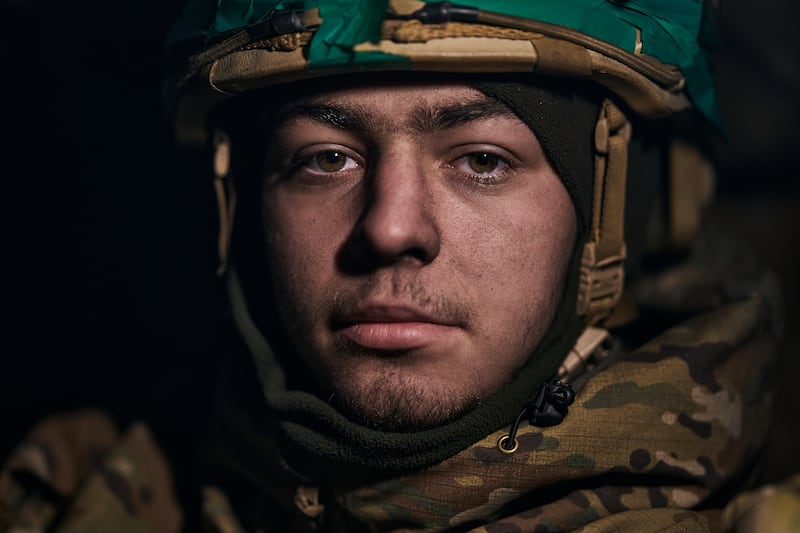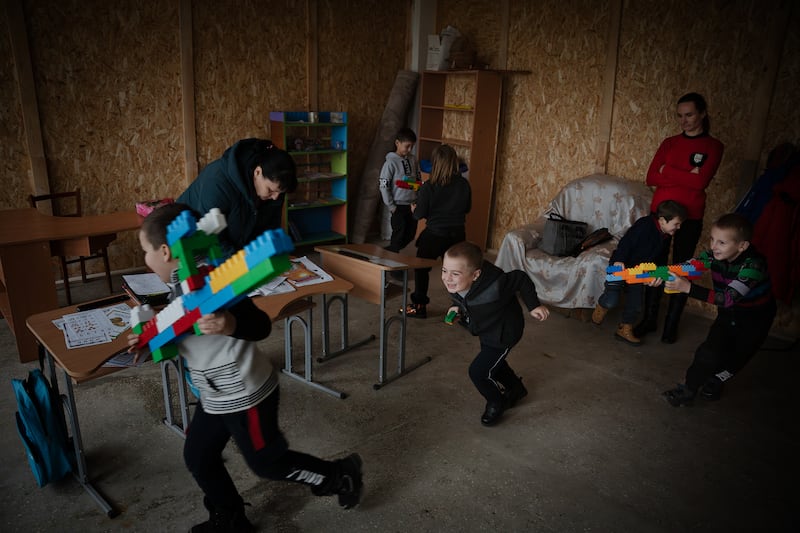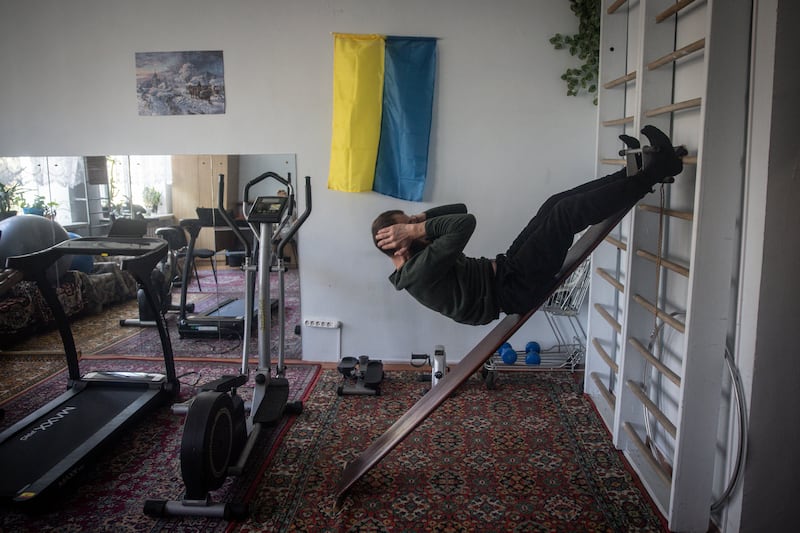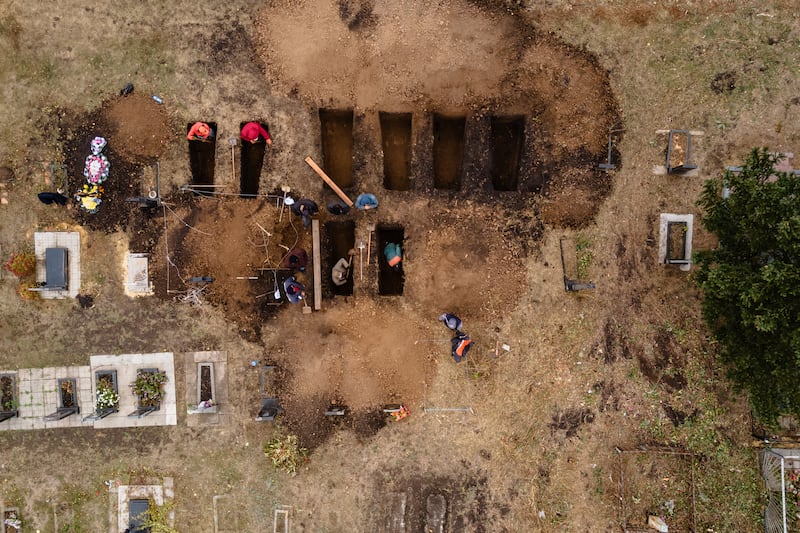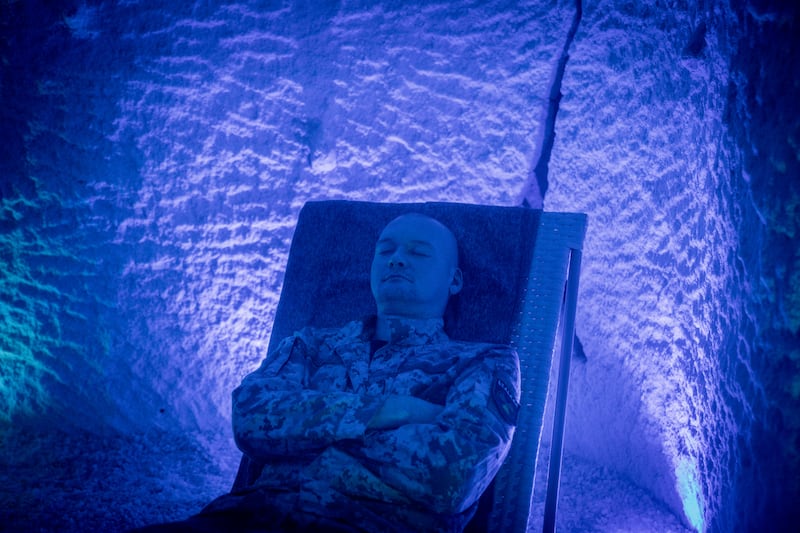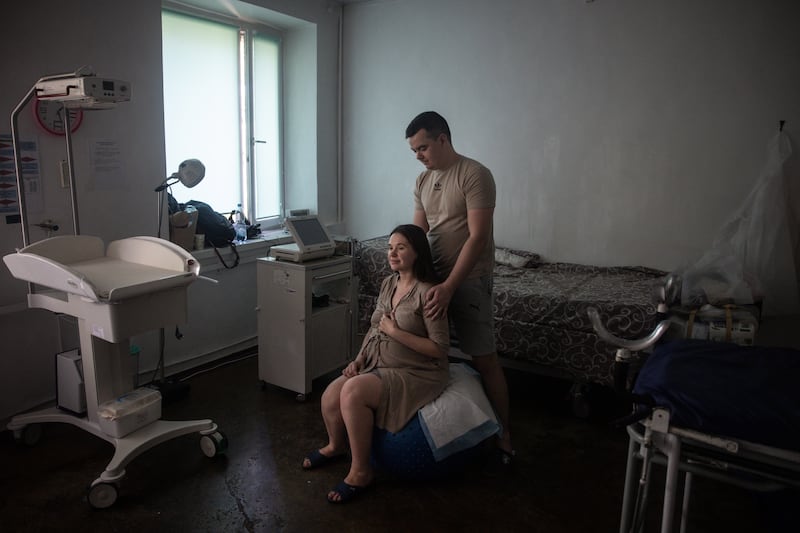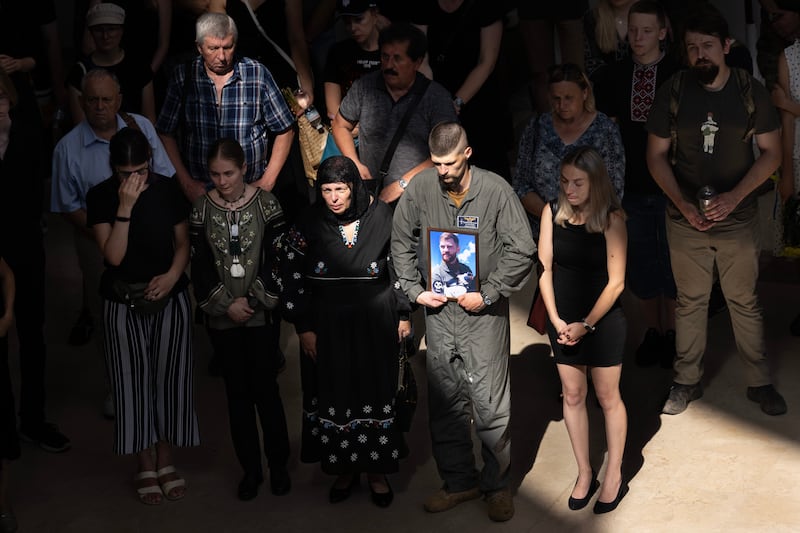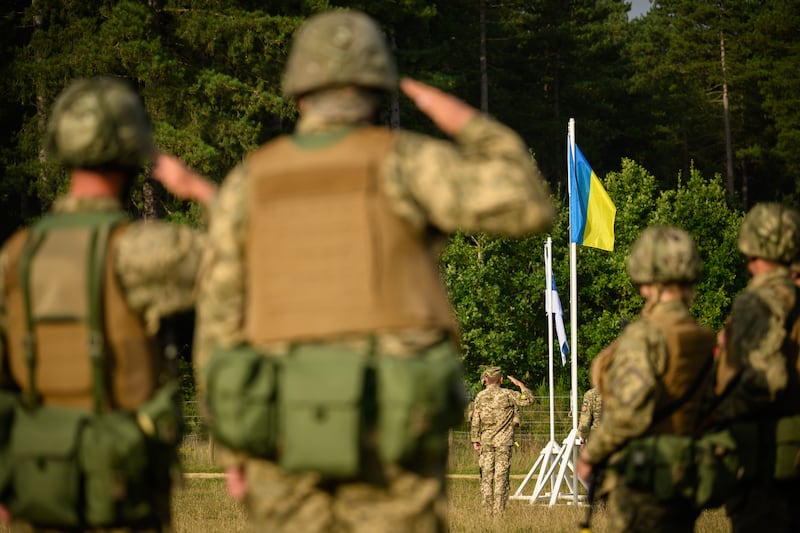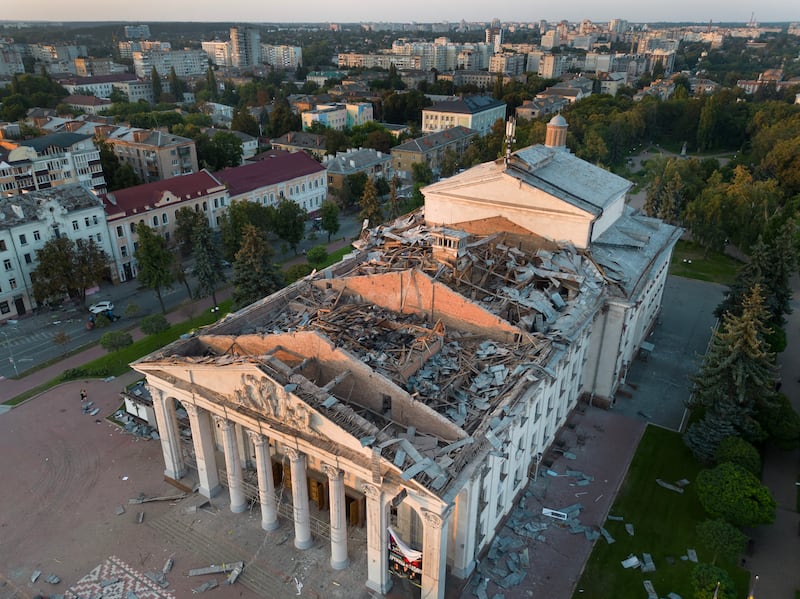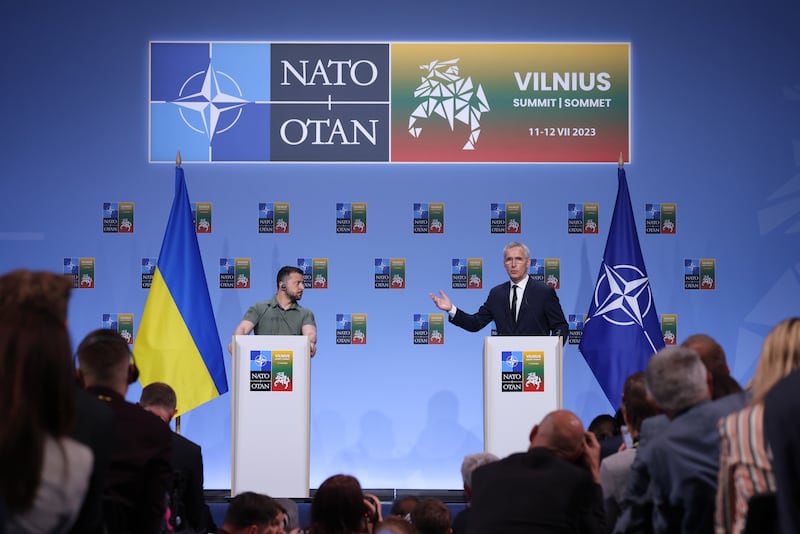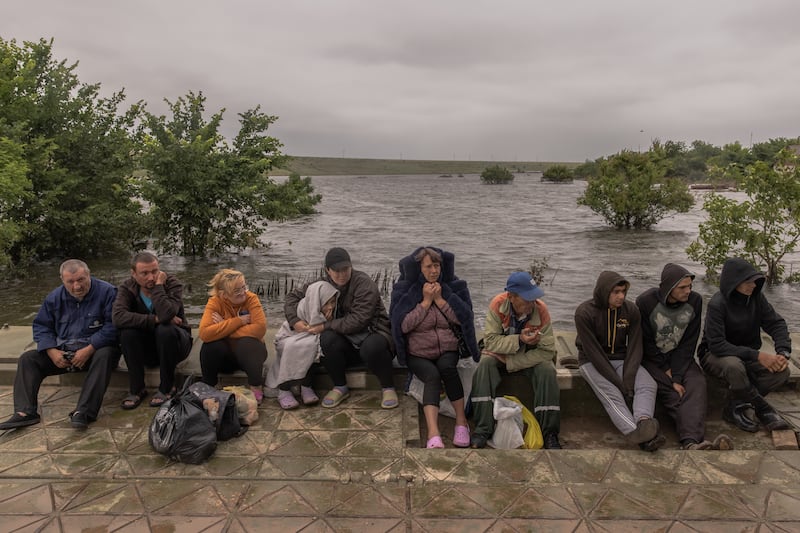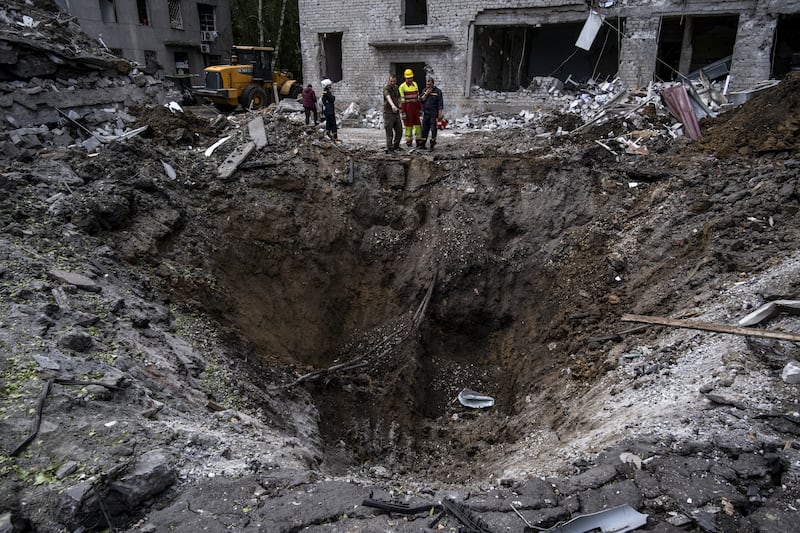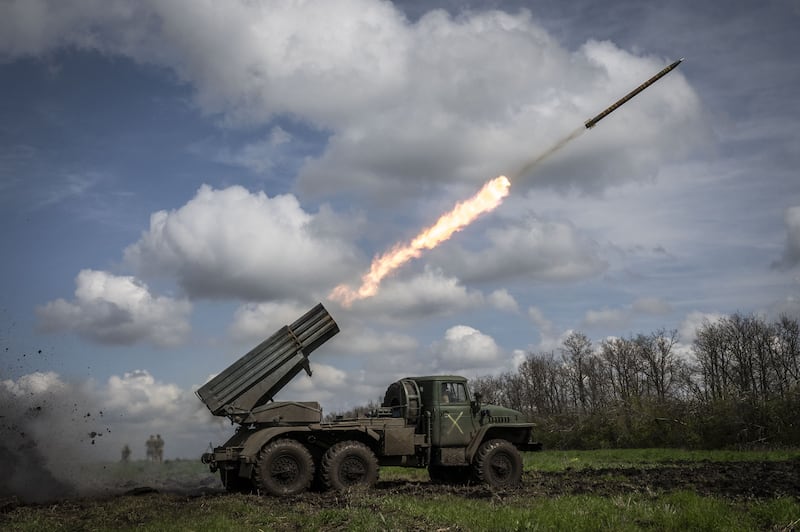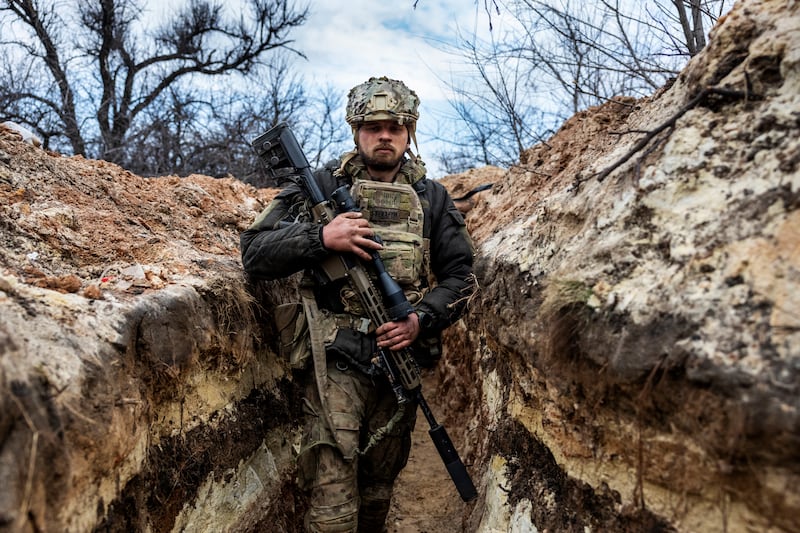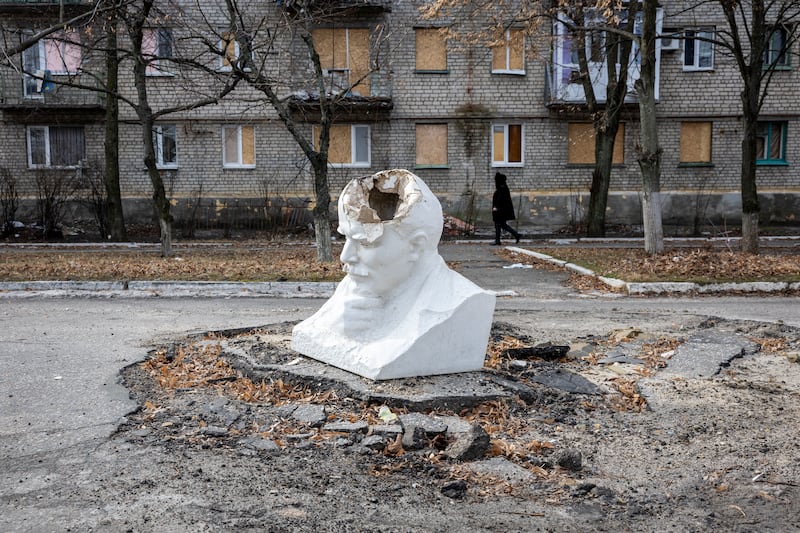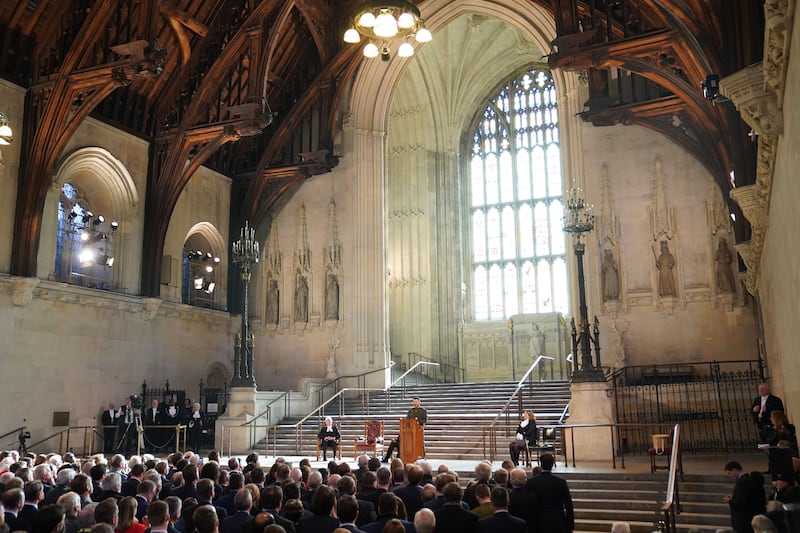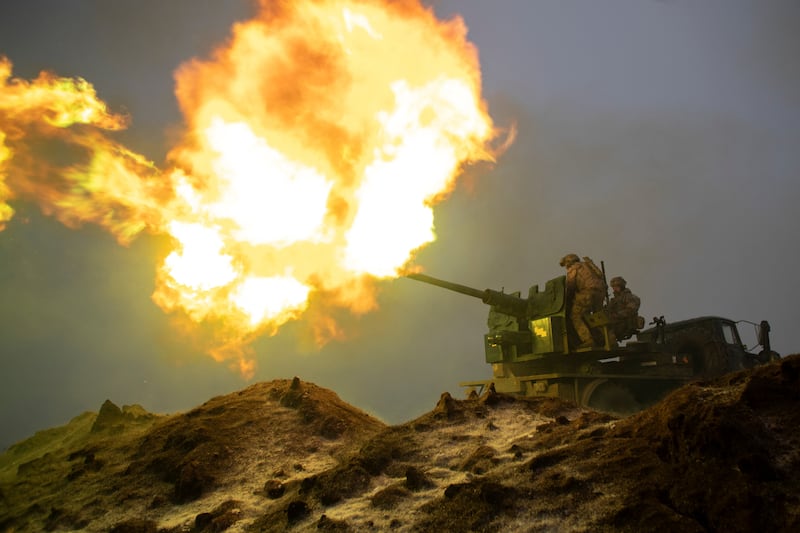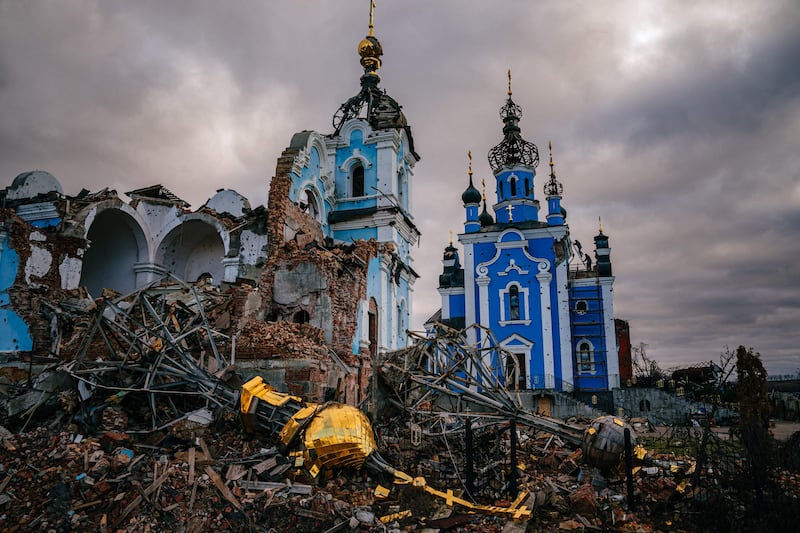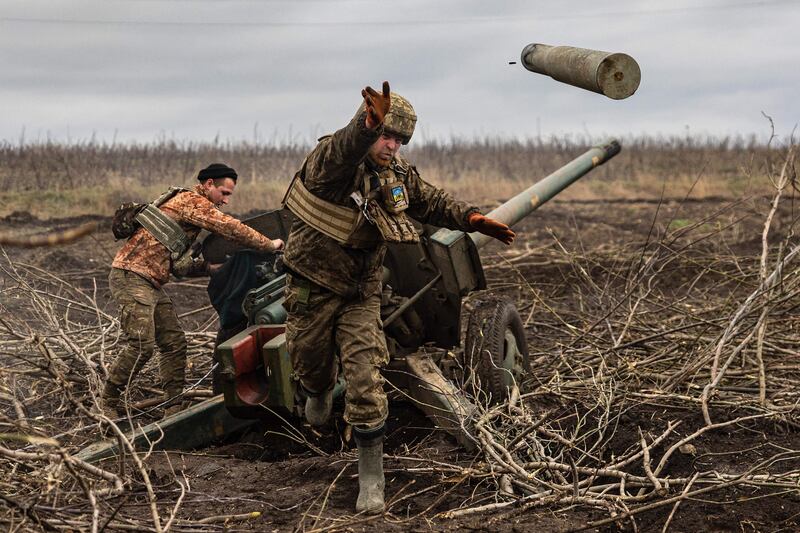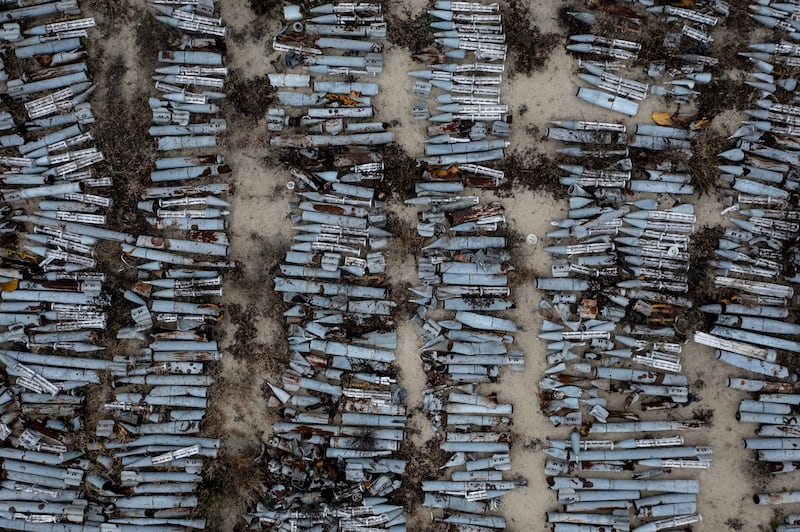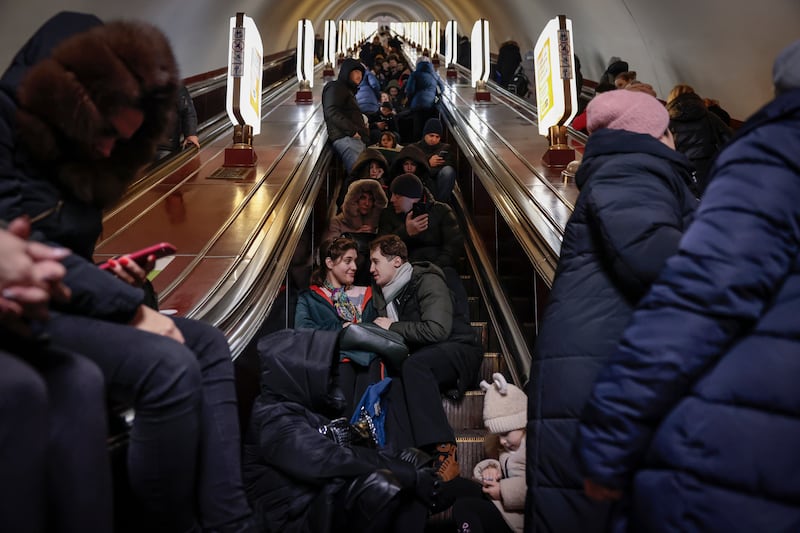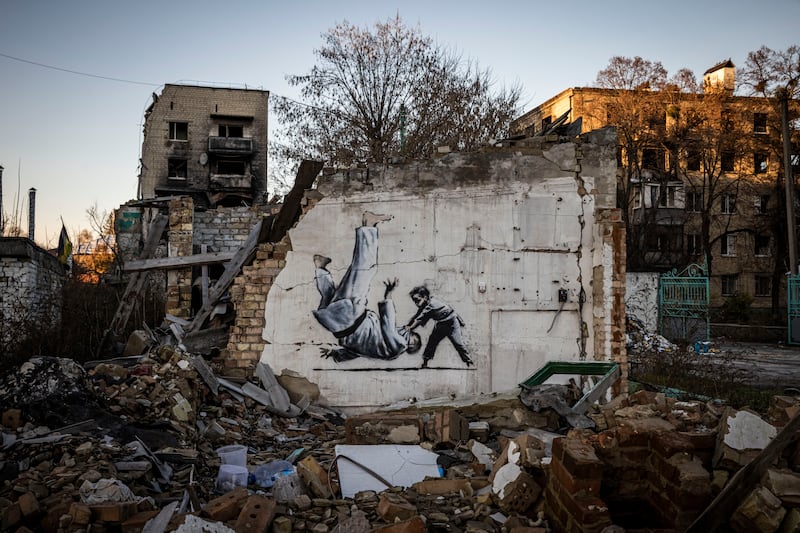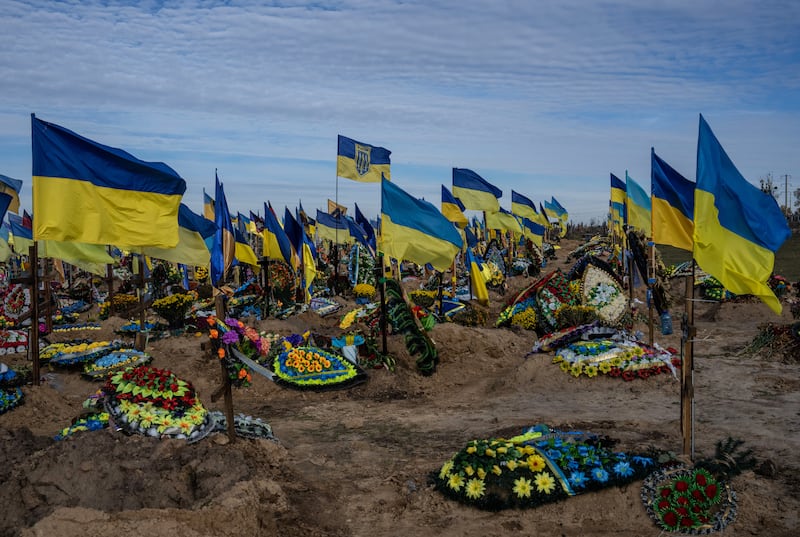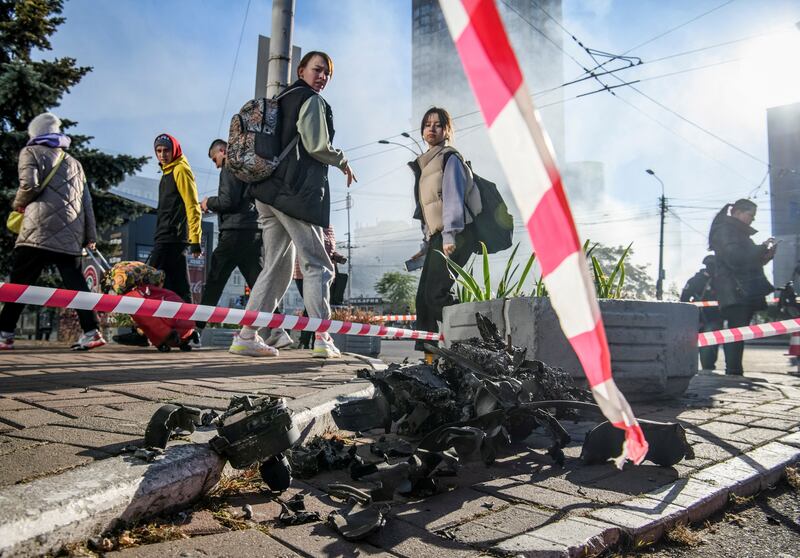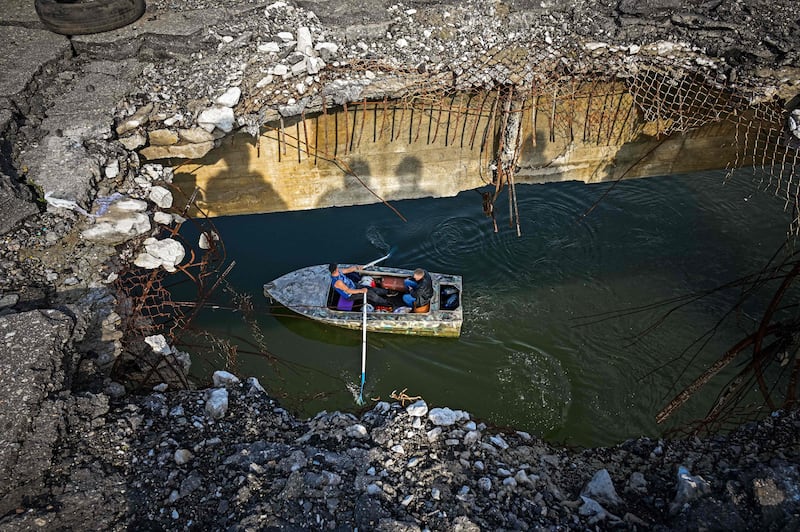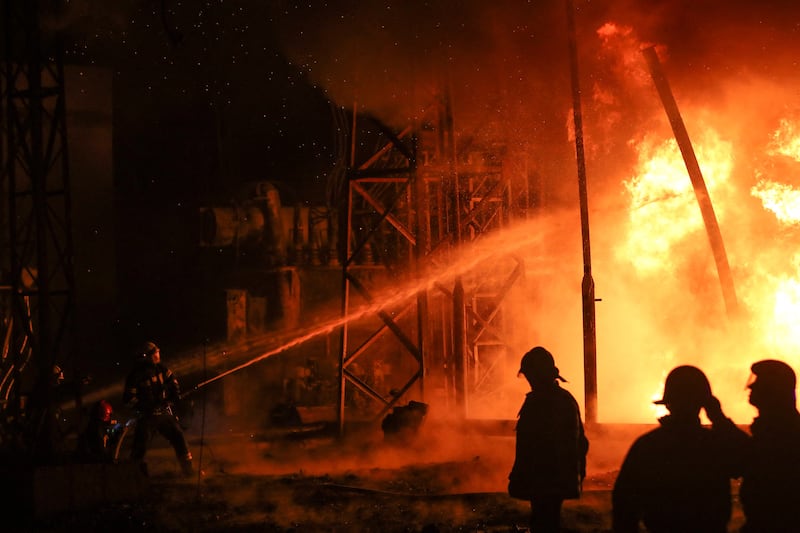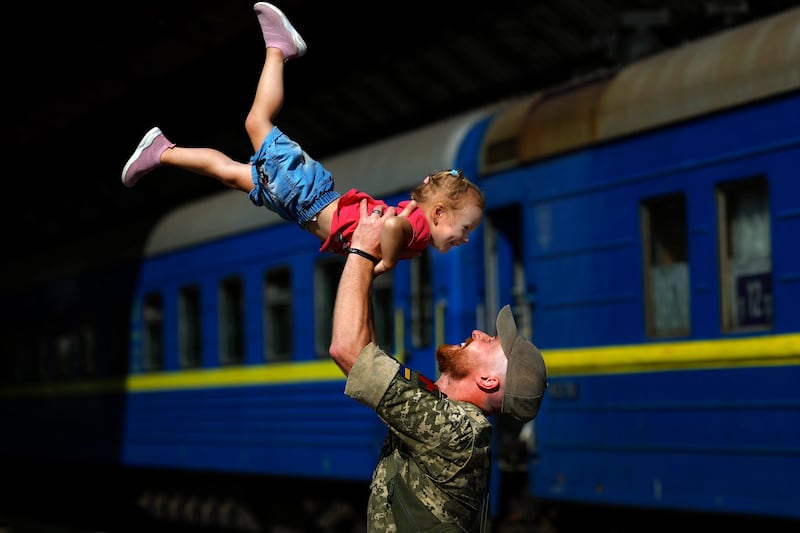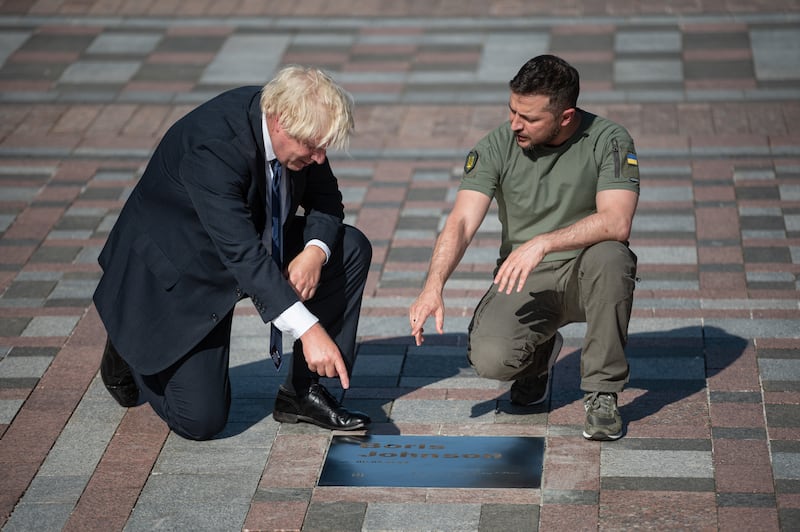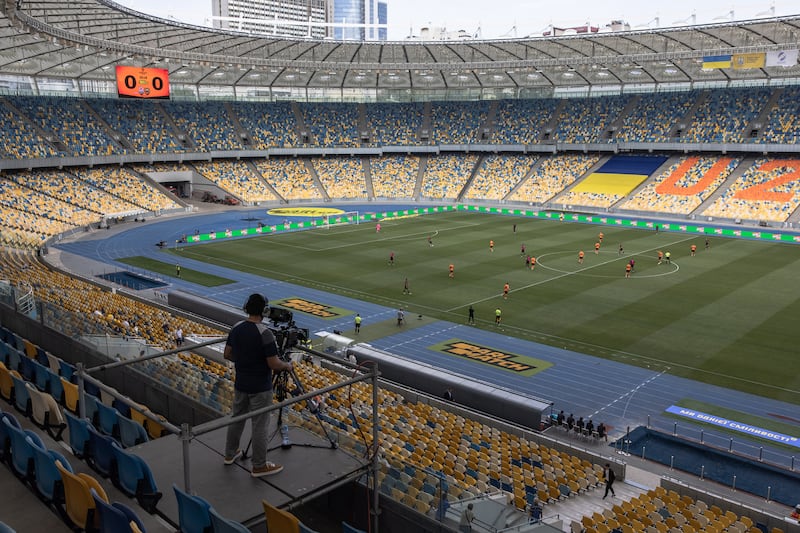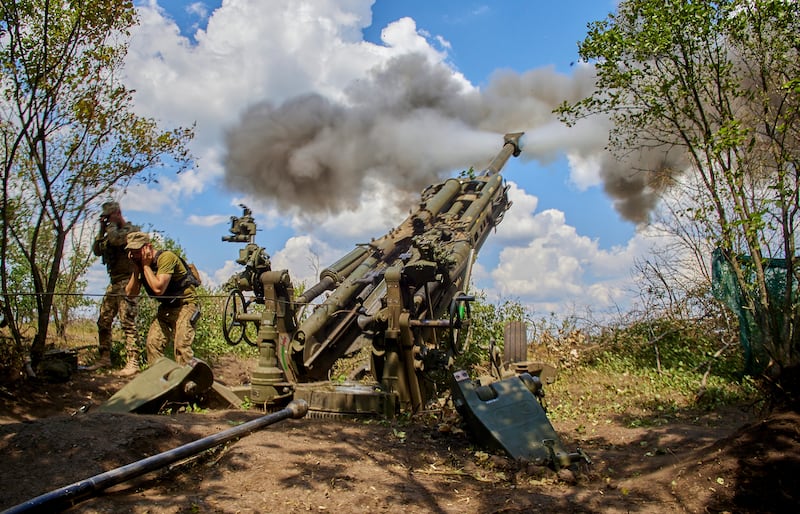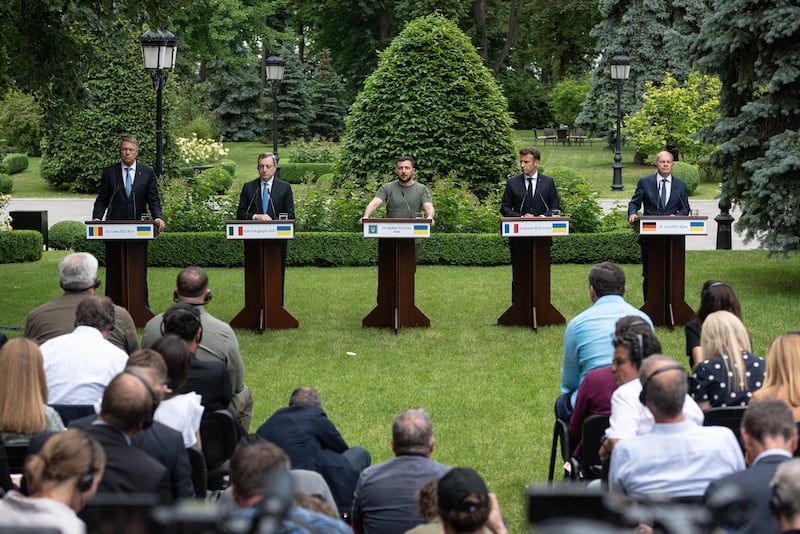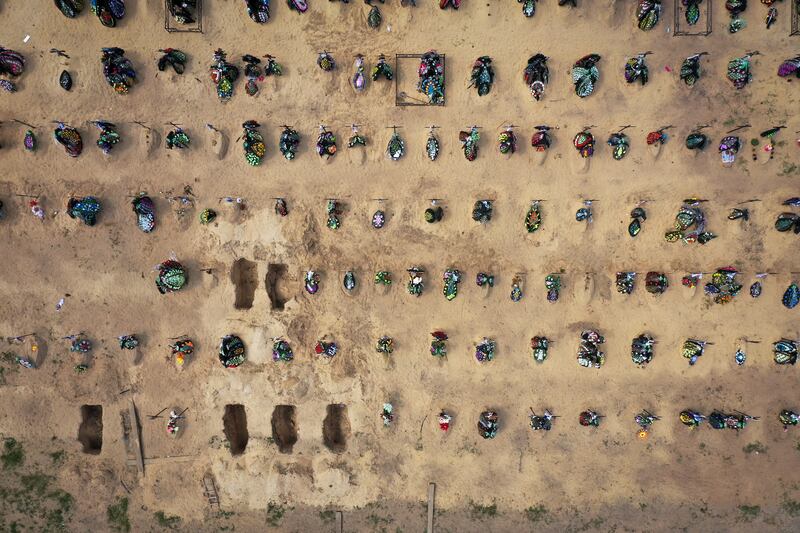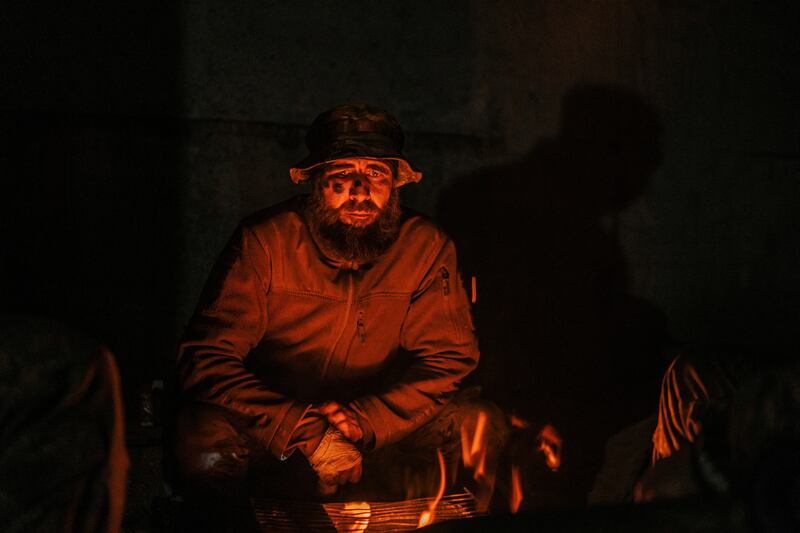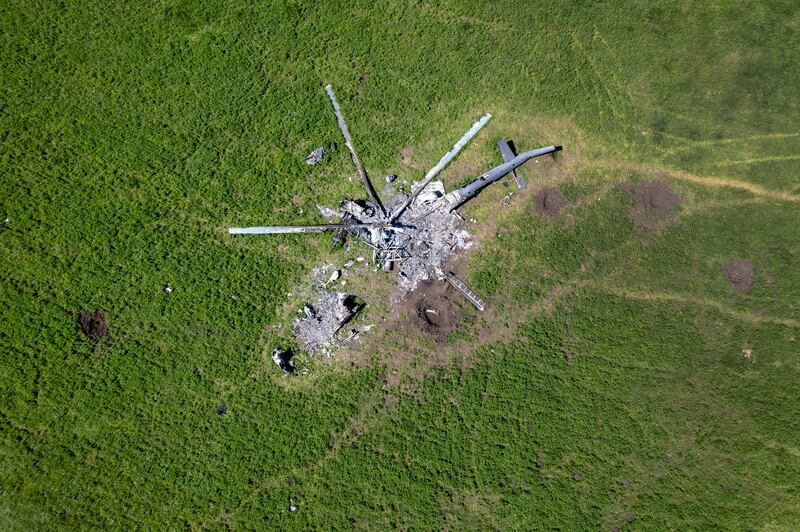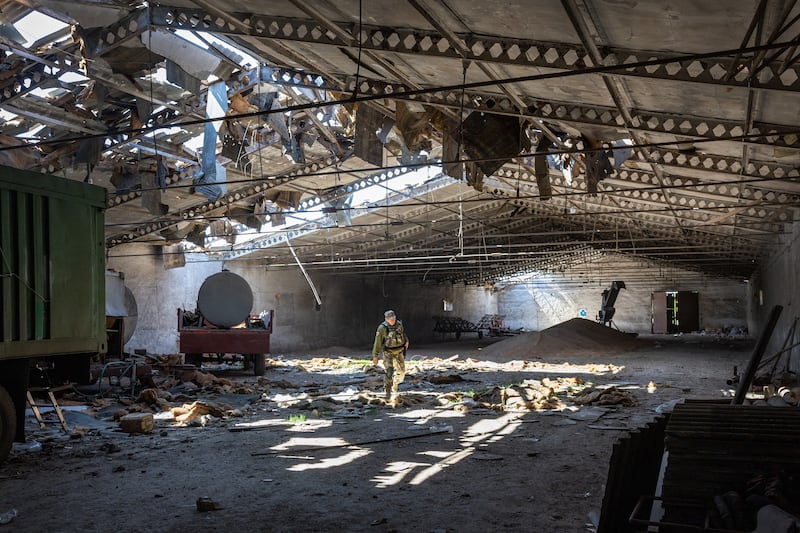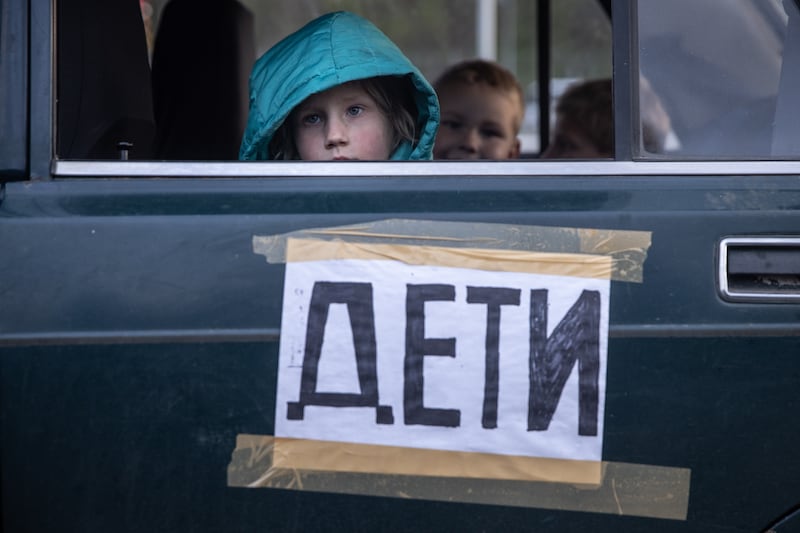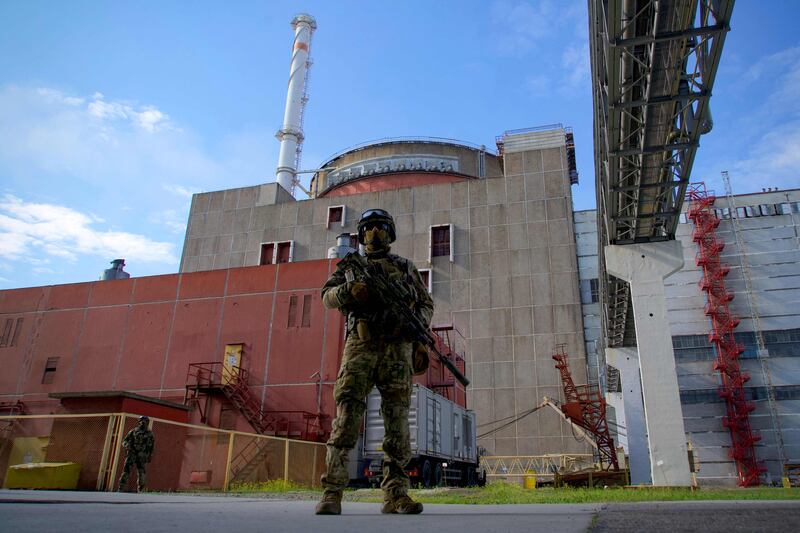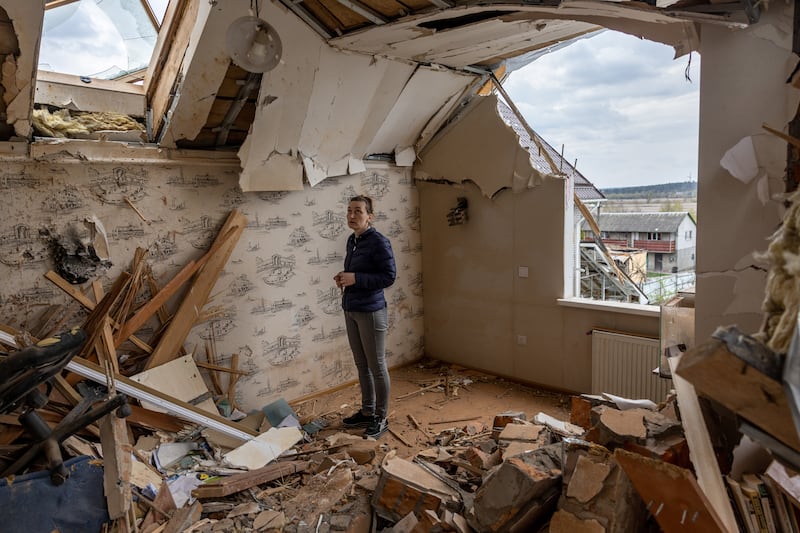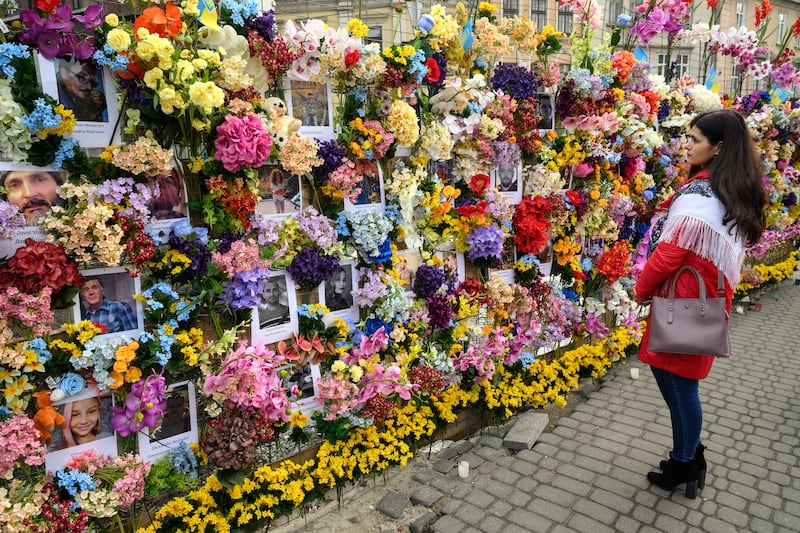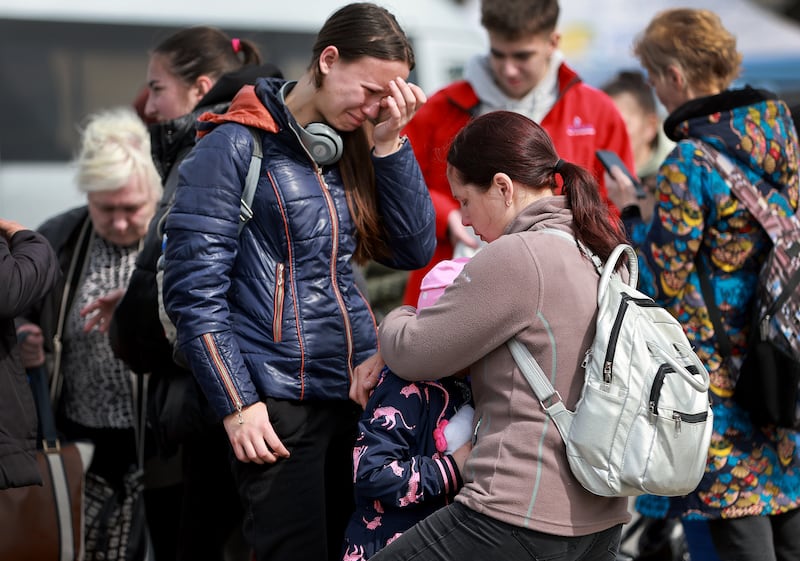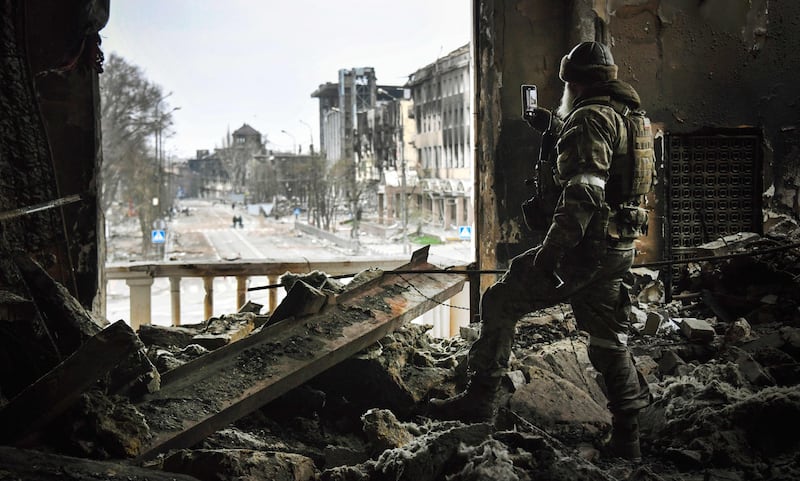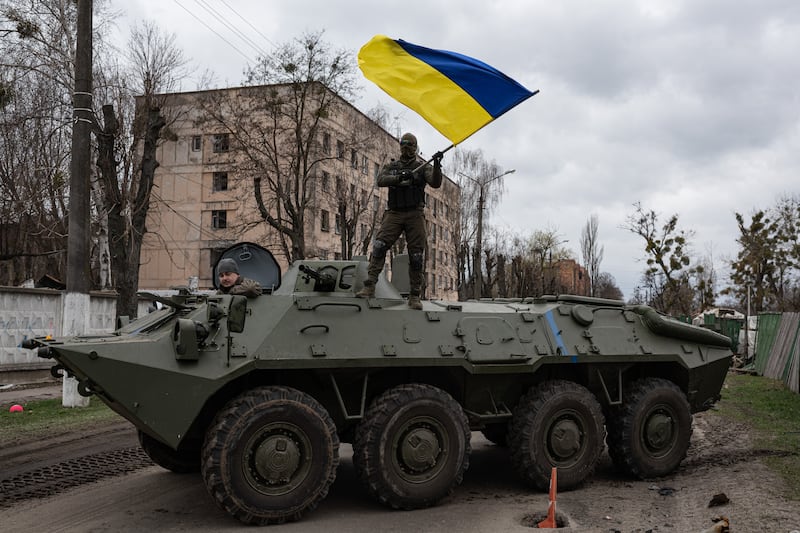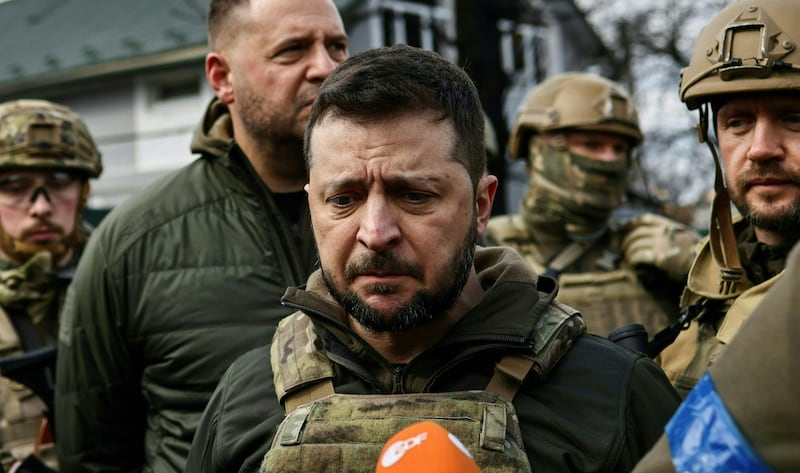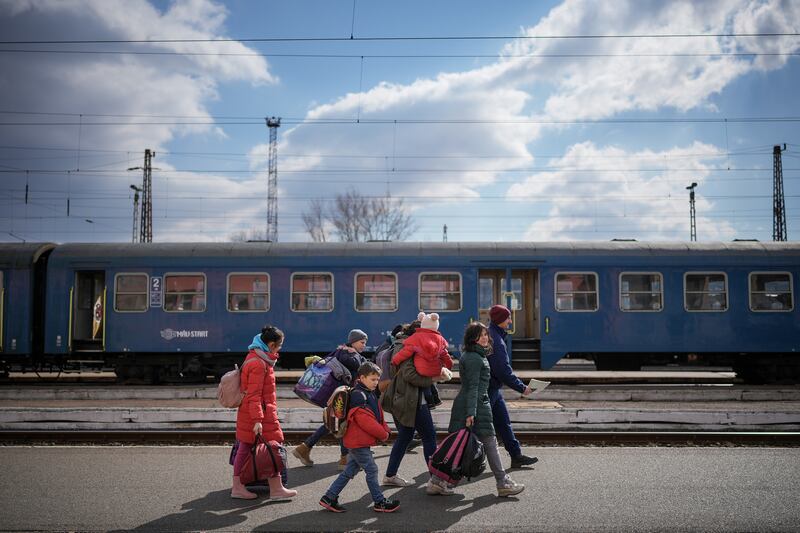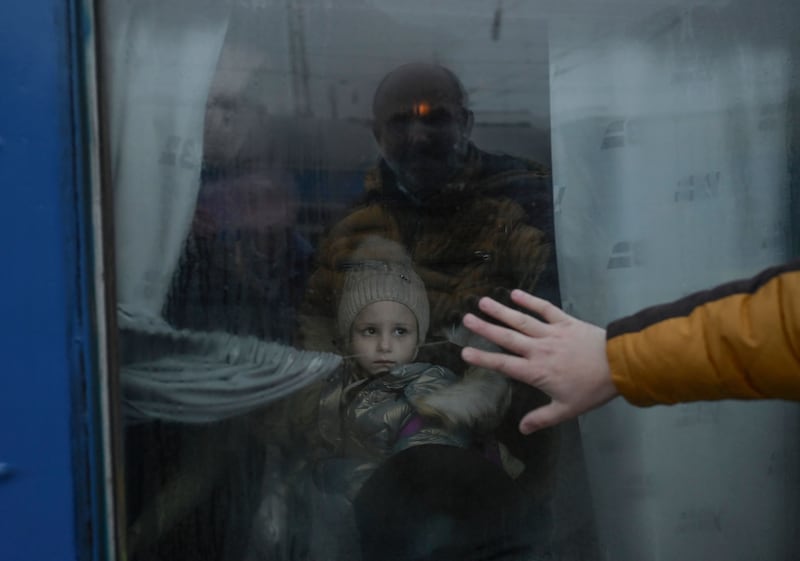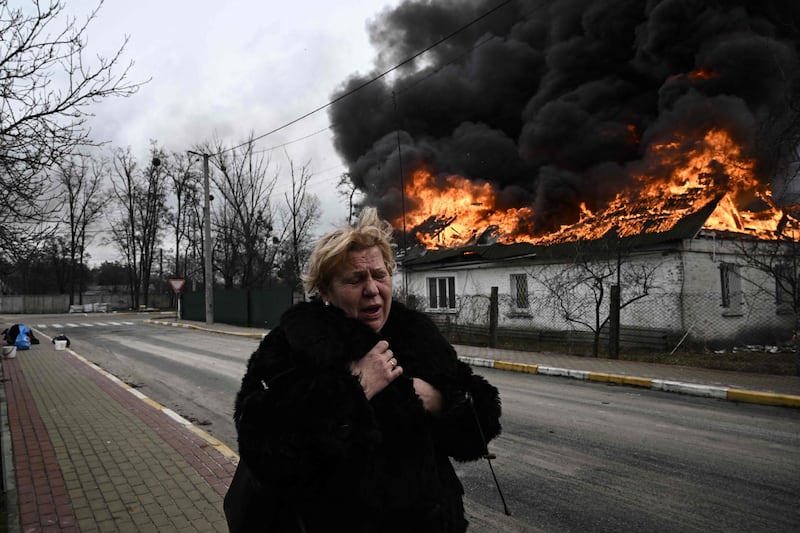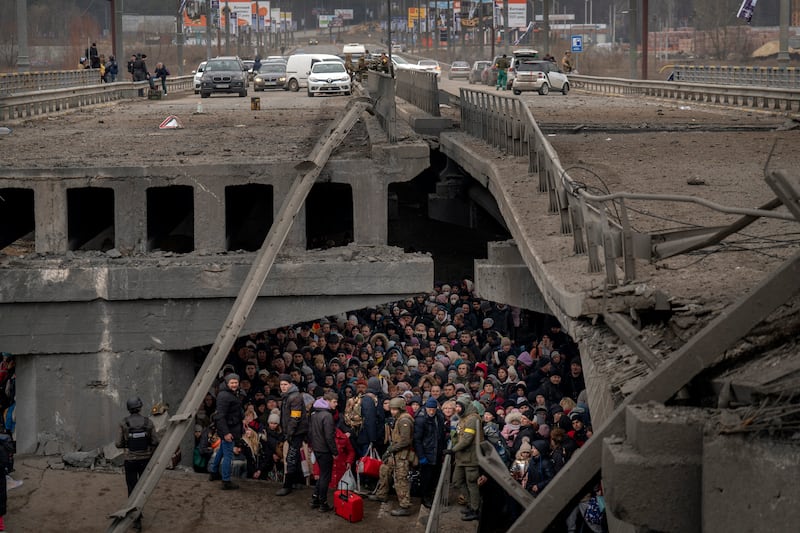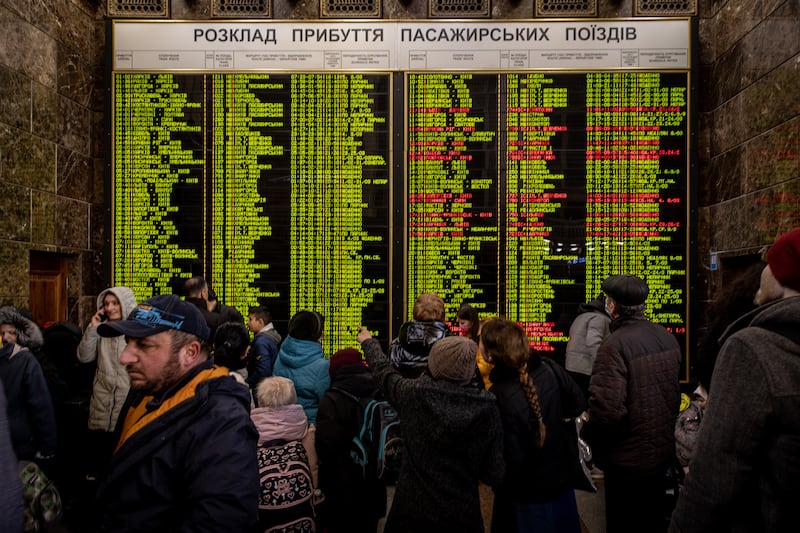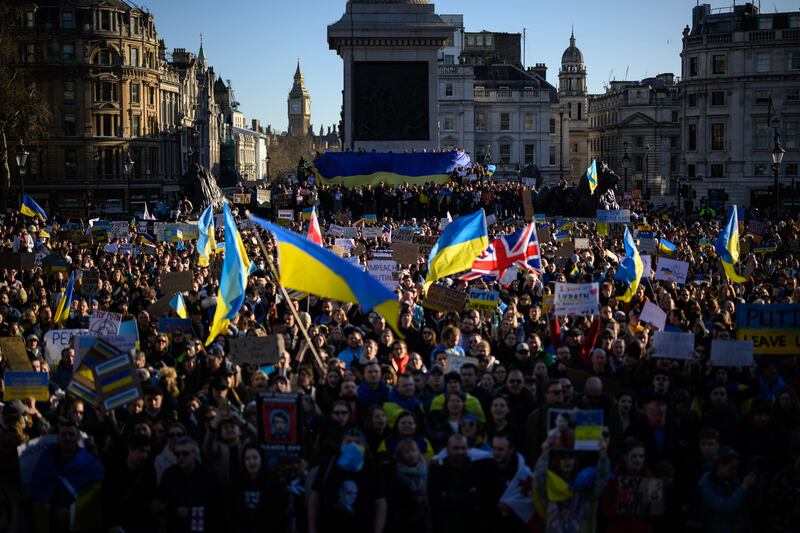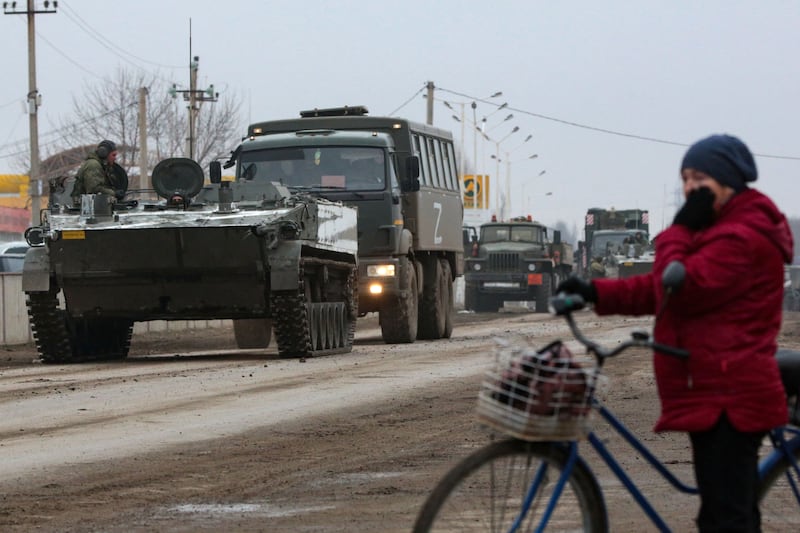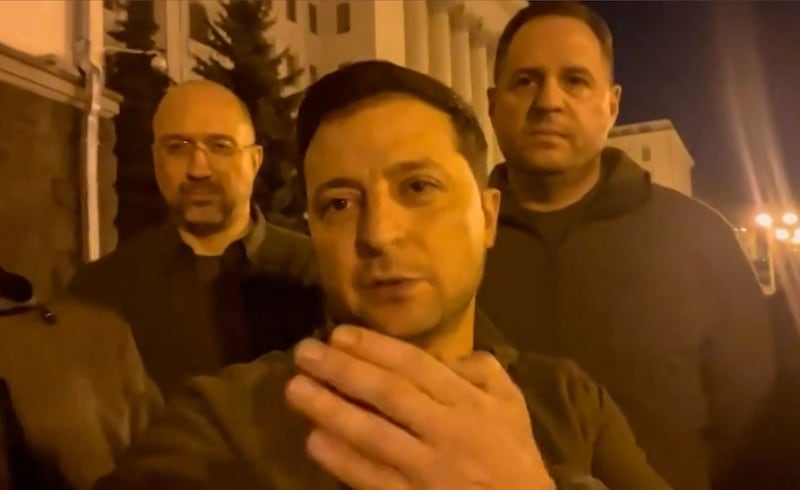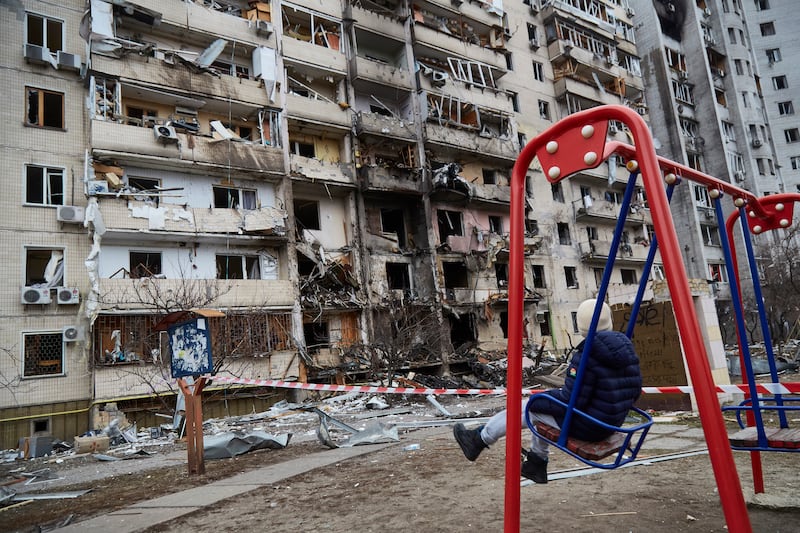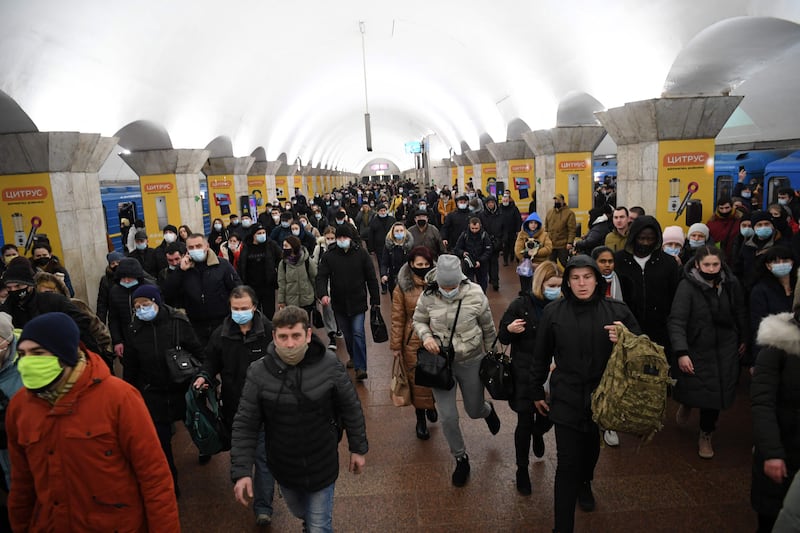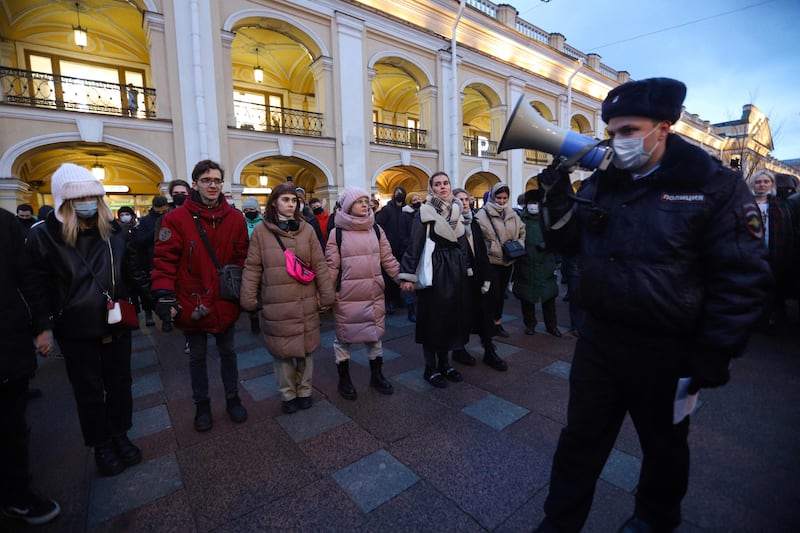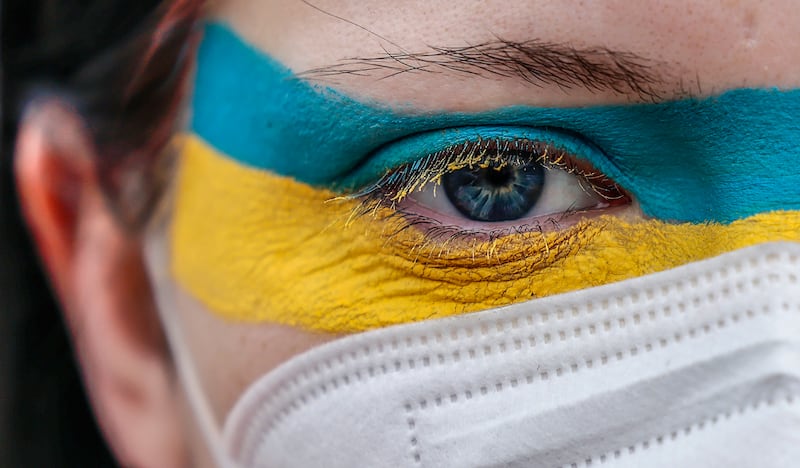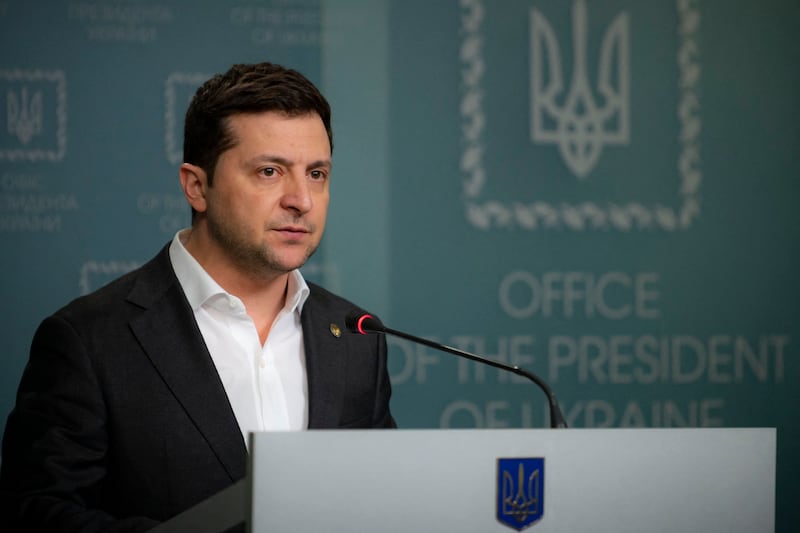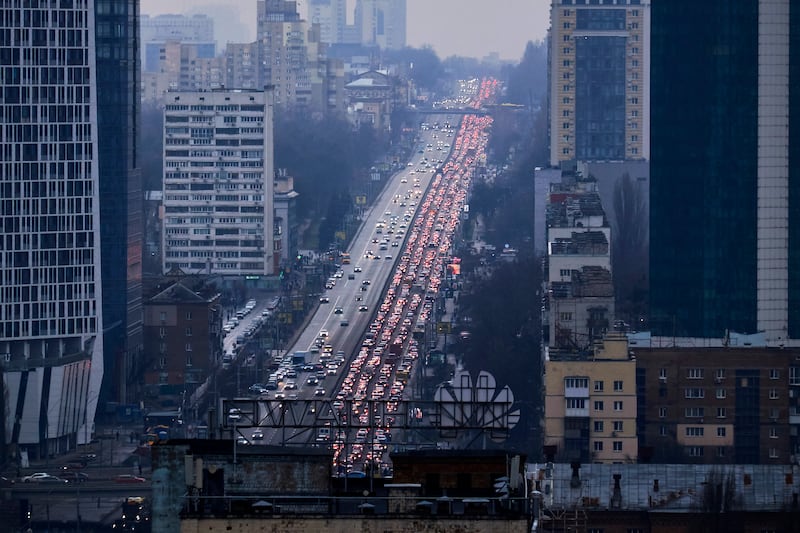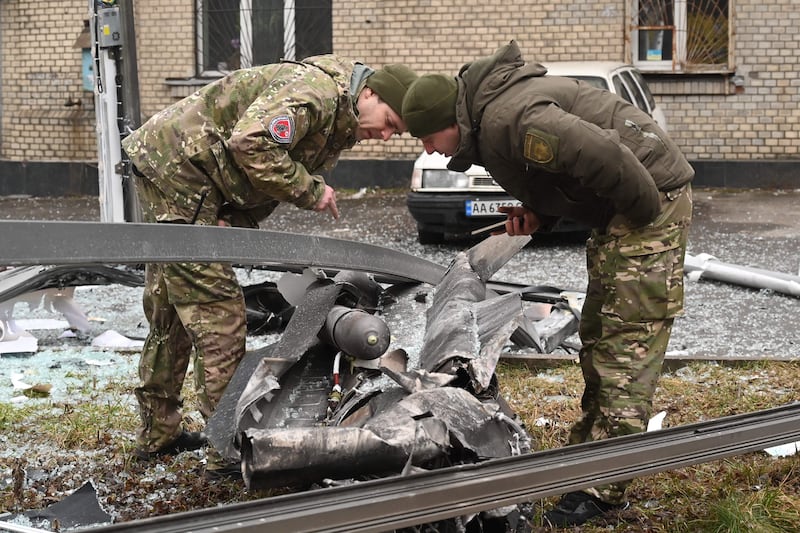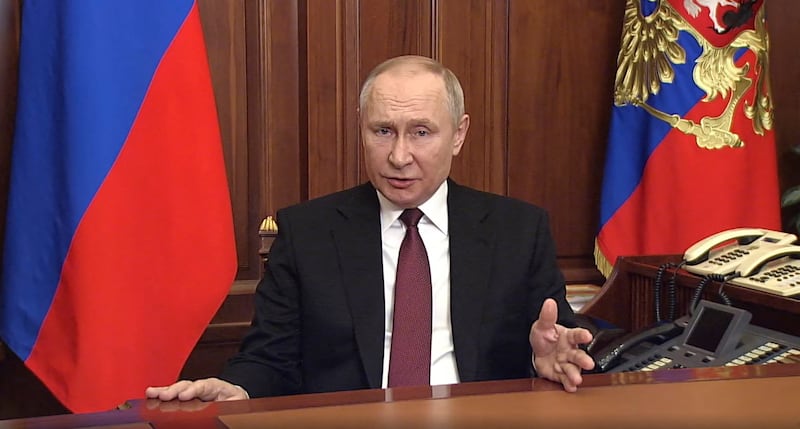Allies were split on Tuesday over President Emmanuel Macron's suggestion that sending troops to Ukraine “should not be ruled out” as the French leader recognised that countries were often “six to 12 months late” in delivering military aid to the embattled country.
A number of countries, including close allies of Ukraine such as Poland and Sweden, were quick to clarify that they had no intention of putting soldiers on the ground following Mr Macron's comments on Monday evening. He had been speaking at a press conference following a Ukraine support summit attended by more than 20 leaders.
Reporters questioned Mr Macron on the topic because Slovakia's Prime Minister Robert Fico had said before the meeting that some countries were considering whether to strike bilateral deals to send troops to Ukraine to help it fend off Russian forces, two years after Moscow's full-scale invasion.
Mr Macron warned that “there's no consensus today to officially send, assume and endorse troops on the ground. But … nothing should be excluded”. He declined to clarify France's position, saying that he would maintain “strategic ambiguity”.
Despite his apparent caution, Mr Macron's comments seem to have irked some European countries. Austria's Foreign Affairs Minister Alexander Schallenberg reiterated on Tuesday that there was “no consensus” about sending troops to Ukraine and said it was “surprising” to start such “an unnecessary debate”. Austria is not a Nato member.
Even Nato's secretary general Jens Stoltenberg weighed in, saying: “Nato allies are providing unprecedented support to Ukraine. We have done that since 2014 and stepped up after the full-scale invasion. But there are no plans for Nato combat troops on the ground in Ukraine.”
German deputy chancellor Robert Habeck said there was no chance of Berlin deploying forces. “German soldiers won’t go to Ukraine,” he said.
The suggestion that allies were considering sending troops to Ukraine sent alarm bells ringing in Moscow, where Kremlin spokesman Dmitry Peskov told journalists: “The very fact of discussing the possibility of sending certain contingents to Ukraine from Nato countries is a very important new element.”
Ukraine, however, welcomed Mr Macron's statement. Presidential adviser Mykhailo Podolyak said in a written comment that it showed “an absolute awareness of the risks posed to Europe by a militaristic, aggressive Russia”.
Germany faces criticism
Apparent rifts about how to address the war in Ukraine between Europe's two most influential countries, France and Germany, were also apparent at the Paris summit. Mr Macron made some comments that were widely interpreted as directly pointed at Germany's hesitation to send military aid to Ukraine in the first months of the war.
“Two years ago, many around this table were saying: we are going to offer sleeping bags and helmets,” said the French president. “Today they say: we have to do faster and harder to have missiles and tanks. They have the humility to note that we have often been six to 12 months late.”
The EU has only sent 30 per cent of the million shells it had promised to deliver by March, said Ukraine's President Volodymyr Zelenskyy. “It was undoubtedly an imprudent commitment,” said Mr Macron, who also lauded his country's “discretion” when it comes to support to Ukraine.
In absolute figures, France contributes far less to Ukraine's war effort than Germany, according to the Kiel Institute. It has found that Germany was the second largest donor to the country after the US between January 2022 and October 2023 with over €17.1 billion in military aid. In contrast, France only contributed €0.54 billion.

Despite this contrast in figures, the summit's result seem to have strengthened the perception that France leads Europe's response to the war in Ukraine as German chancellor Olaf Scholz came under fire in his own country for refusing to send Taurus cruise missiles to Ukraine.
Before travelling to Paris, Mr Scholz told reporters that he was against copying “what the British and French are doing in terms of target management and support for target management” with their missiles for Ukraine.
News website Politico has previously reported that Mr Scholz allegedly believes that Taurus missiles would allow Ukraine to target the Kerch bridge linking occupied Crimea with Russia – representing a serious escalation which he is reportedly against.
German politicians criticised Mr Scholz for endangering France and the UK by portraying them as in direct conflict with Russia. Nato allies are bound by Article 5, which states that an attack against one is an attack against all.
Norbert Roettgen, a former chair of the German parliament's foreign affairs committee, described Mr Scholz's comments as irresponsible.
“Both countries provide cruise missiles to Ukraine. Of course that does not make them parties to the conflict,” he said. “Scholz has lost control of his own arguments and is affronting our closest allies.”
Fellow conservative MP Katja Leikert said Mr Scholz was “presenting one spurious argument after another” to block the delivery of Taurus missiles.
“Did France and Britain become parties to the conflict, in his eyes, because they delivered Scalp and Storm Shadow missiles?” she asked. “Does anyone believe that?”
A spokesperson for UK Prime Minister Rishi Sunak said that “beyond the small number of personnel we do have in [the] country supporting the armed forces of Ukraine, we haven't got any plans for large-scale deployment”.
At the Paris summit, some allies also pledged to send more ammunition to Ukraine. The Czech Republic put forward a plan to buy them outside Europe to speed up the process and was publicly supported by the Netherlands, which said it would contribute €100 million to the plan.
Around 15 other countries want to participate in the plan, said Czech Prime Minister Petr Fiala, who did not name the countries. Asked which countries the ammunitions would be bought from, he answered: “It's a secret.”


